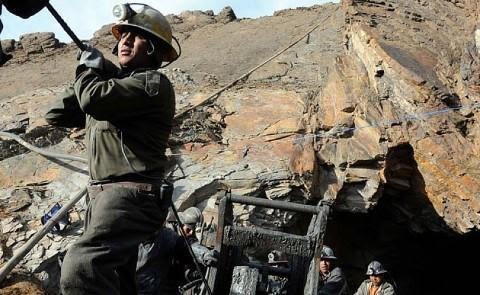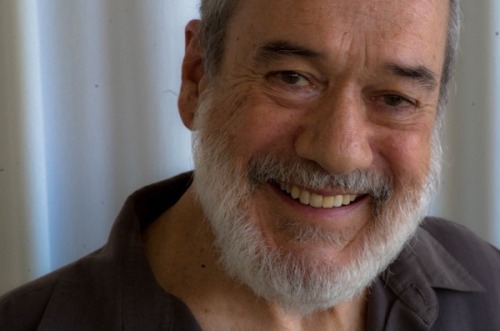Carmelo Ruiz
It has been taken as an article of faith by not few American environmentalists and food activists that organic agriculture was originally a concept filled with revolutionary promise, that was poised to replace the corporate-dominated toxic US food system with a decentralized, ecologically sound, healthy, and socially just, network of eco-farms and eco-villages producing food using the latest eco-technologies. And that the main reason this has not happened is that “the US Department of Agriculture jumped into the organic bandwagon, turned this agricultural revolution into a bureaucratic nightmare and watered down its standards in order to please major corporate retailers and food processors. Now the term ‘organic’ is fast becoming meaningless.” So claims this discourse.
Those of us with some familiarity with the US organic farming scene have at some point heard this account of the rise and fall of organic, along with the list of alleged sellouts who started out as radical hippie back-to-the-landers who became corporate suits or federal bureaucrats. Organic farmer and social ecology professor Grace Gershuny provides a more nuanced view of these processes of transformation in her book Organic Revolutionary: A memoir of the movement for real food, planetary healing, and human liberation. The main focus of this book is the story behind the green and white USDA Organic label, which American grocery shoppers are becoming increasingly familiar with. The process that led to the implementation of the label, as well as nationwide organic standards, is a very contentious one, involving the USDA bureaucracy and countless stakeholders, and is narrated by the author from a very personal perspective.
Gershuny is no dispassionate detached observer. The story of organic is the story of her life. Not just her professional and public life; her love life and family life are also inseparable from the broader drama of Organic USA. For this reason, Gershuny’s history of organic standards and labeling is necessarily an autobiography- and inversely, she could never tell the story of her life without going through the whole history of the organic movement.
The author tells her journey: how her father was influenced by the ideas of maverick Ralph Borsodi, founder of the School of Living, and her early work with the New Alchemy Institute, the Northeast Organic Farmers Association, and the Institute for Social Ecology, back then affiliated with Goddard College. She also provides a brief and useful primer on the origins of organic agriculture, explaining the valuable contributions of its forebears, like F.H. King, Rudolf Steiner, Sir Albert Howard, J.I. Rodale, Vinoba Bhave, and Scott and Helen Nearing. Gershuny also emphasizes the importance of philosopher and social critic Murray Bookchin, founder of social ecology, as an early critic of pesticides and industrial agriculture, and as ecological visionary:
Most people credit Rachel Carson and Silent Spring, published in 1962, with inspiring the environmental movements of the sixties. But Murray Bookchin had published the largely unnoticed Our Synthetic Environment a few months before. While Carson wrote from a scientific perspective and Bookchin from a political and social viewpoint, they converged in raising the alarm about threats to human and non-human health posed by a range of environmental and foodborne toxins… Bookchin, however, identified distorted social relations - not ‘modern technology’ in general - as the root of the ecological crisis. The oppression of nature is an outgrowth of the oppression of one group of humans by another - otherwise known as hierarchy. Although few in the incipient organic movement were aware of the book, Our Synthetic Environment outlined the major thematic ideas that shaped its early development. (P. 45.)
In 1994 she accepted a staff position at the USDA’s newly formed National Organic Program, whose role is to implement the 1990 Organic Food Production Act. Some grassroots activists frowned at this “uncool” move on her part. But as Gershuny explains:
One of my goals in taking on this work for the USDA was to help introduce more organic-friendly thinking within this huge bureaucracy, second only to the Pentagon in size. Never again, I swore, would an organic farmer walk into an Extension Service office and be scoffed at. Once this law was implemented, every federal agricultural agency would have to offer assistance… I saw the sanctioning of organic farming by its former arch-enemy as a turning point in the radical transformation of American agriculture. (From the prologue)
Her account of the various conflicts, contradictions and trade-offs involved in setting up the US organic standards, written simultaneously from the perspective of the committed activist and of the government insider, is must reading for those who want to understand the process by which the USDA Organic label appeared on grocery shelves all over the country. This federal government work sent Gershuny straight to public controversy and made her the object of accusations of “selling out”. Some activists wrote her into the list of “bad guys” in the “government-corporate takeover of organic” narrative described at the beginning of this review. She complains that they have totally misrepresented her views and her work at the USDA without even bothering to check the facts, much less talk with her directly. More than anything else, Organic Revolutionary is Gershuny’s bid to set the record straight.
The messages coming from many activists seemed contrary to the organic principles that we all claimed to espouse, and the demand that the standards must be as high as possible actually played into the likely agribusiness agenda of preventing organic agriculture from becoming any threat to business as usual by limiting it to a tiny niche market. (From the prologue)
This book contains a much needed perspective on the debates that rage within the US organic movement, including labeling and nationwide standards, the role of the US government, and the reconciliation of radical politics with real world practice. Gershuny’s views are unpopular- and will surely remain so- with some activists and organic advocates. But regardless of their viewpoint, readers will come away enriched from reading Organic Revolutionary.
FULL DISCLOSURE: Carmelo Ruiz is a graduate of the Institute for Social Ecology’s MA program and took a summer class with Gershuny. He has also worked with some of her most outspoken critics and attackers.
Etiquetas: Carmelo, eng, Gershuny, Social Ecology

 View high resolution
View high resolution